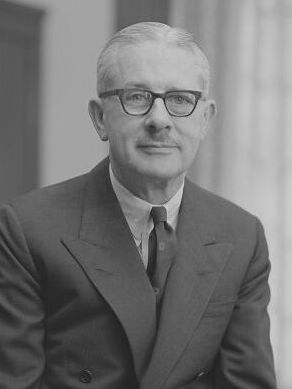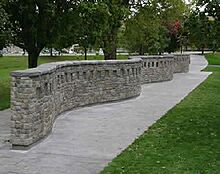Walter L. Gordon facts for kids
Quick facts for kids
Walter L. Gordon
|
|
|---|---|

Gordon, c. 1964
|
|
| President of the Privy Council | |
| In office 4 April 1967 – 10 March 1968 |
|
| Prime Minister | Lester B. Pearson |
| Preceded by | Guy Favreau |
| Succeeded by | Pierre Trudeau (Acting) |
| Minister without portfolio | |
| In office 9 January 1967 – 3 April 1967 |
|
| Prime Minister | Lester B. Pearson |
| Minister of Finance | |
| In office 22 April 1963 – 10 November 1965 |
|
| Prime Minister | Lester B. Pearson |
| Preceded by | George Nowlan |
| Succeeded by | Mitchell Sharp |
| Member of Parliament for Davenport |
|
| In office 18 June 1962 – 24 June 1968 |
|
| Preceded by | Douglas Morton |
| Succeeded by | Charles Caccia |
| Personal details | |
| Born |
Walter Lockhart Gordon
27 January 1906 Toronto, Ontario, Canada |
| Died | 21 March 1987 (aged 81) Toronto, Ontario, Canada |
| Political party | Liberal |
| Spouse |
Elizabeth Counsell
(m. 1932) |
| Children | 3 |
| Relatives | Charles Drury (brother-in-law) |
| Profession |
|
Walter Lockhart Gordon (January 27, 1906 – March 21, 1987) was an important Canadian figure. He was an accountant, a businessman, a politician, and a writer. He is remembered for his strong belief in Canada controlling its own economy.
Contents
Who Was Walter L. Gordon?
Walter Gordon was born in Toronto, Ontario. He grew up to become a very influential person in Canada. He helped shape Canada's economic policies and social programs.
His Early Life and Education
Walter Gordon went to school at Upper Canada College. He also studied at the Royal Military College of Canada in Kingston, Ontario. These schools helped him prepare for his future career.
Starting His Career
After finishing his studies, Walter Gordon joined his family's accounting firm in 1927. It was called Clarkson, Gordon and Company. He worked hard and became a certified accountant in 1931. By 1935, he was made a partner in the firm.
During World War II, Gordon helped the government. He worked for the Bank of Canada and the federal Ministry of Finance. Later, in 1946, he led a group that looked at how public services were organized.
Ideas About Canada's Economy
From 1955 to 1957, Gordon led a special group called the Royal Commission on Canada's Economic Prospects. This group studied Canada's economy. Their reports showed concern that too much of Canada's economy was owned by foreign companies. This was especially true in areas like natural resources.
The commission suggested ways to fix this problem. These ideas were very important to Gordon. He continued to talk about them throughout his career in government. This idea of Canada controlling its own economy is called economic nationalism.
His Time in Politics
In 1962, Walter Gordon was elected to the House of Commons of Canada. He became a Member of Parliament for the Liberal Party of Canada.
Minister of Finance
From 1963 to 1965, he served as the Minister of Finance. This was during Prime Minister Lester Pearson's first government. A "minority government" means that the ruling party does not have more than half the seats in Parliament.
In 1965, Gordon introduced a new budget. It included a tax on building materials and factory equipment. It also planned to expand social programs, which help people in need. Other political parties did not like this budget.
Gordon suggested that Prime Minister Pearson call another election in 1965. He also helped lead the Liberal Party's election campaign. When the election did not give the Liberals a clear majority, Gordon felt responsible. He resigned from his Cabinet job and became a "backbencher." This means he was still an MP but no longer a minister.
Later Political Roles
In 1967, Gordon returned to the Cabinet. He became the President of the Privy Council. He held this position until 1968. He was known for his strong belief in economic nationalism. He also supported new social programs that helped Canadians.
Walter Gordon and Prime Minister Pearson had different ideas about spending money. Gordon felt that the government was spending too much. Their long friendship, which started in the 1930s, began to weaken.
When Pearson announced he would retire, Gordon supported Pierre Trudeau to become the new Liberal leader. Trudeau won and became Prime Minister in 1968. He asked Gordon to join his Cabinet again. However, Gordon decided not to. He also chose not to run for election again in 1968.
After Politics: Business and Ideas
After leaving politics in 1968, Walter Gordon went back to business. He continued to promote his ideas about Canada's economy. In 1970, he helped start the Committee for an Independent Canada. This group wanted Canada to have more control over its own businesses and resources.
Historian Jack Granatstein said that this committee helped create an environment where the government could "buy back" Canada. This meant encouraging Canadian ownership of businesses.
Later Years and Legacy
Walter Gordon was the Chancellor of York University from 1973 to 1977. A chancellor is like the head of a university.
Dr. Stephen Azzi, a historian, says that Walter Gordon was responsible for "New Nationalism" in Canada. This idea was about making Canada stronger. It also focused on preventing Canada from being too influenced by the United States.
Gordon wrote books about his political experiences. He passed away in 1987.
Awards and Recognition
In 1976, Walter Gordon was made a Companion of the Order of Canada. This is one of Canada's highest honors. In 1946, he was also made a Commander of the Order of the British Empire for his work during the war.
In 2009, Walter L. Gordon was added to the Wall of Honour at the Royal Military College of Canada. This recognizes his important contributions.
 | Victor J. Glover |
 | Yvonne Cagle |
 | Jeanette Epps |
 | Bernard A. Harris Jr. |


